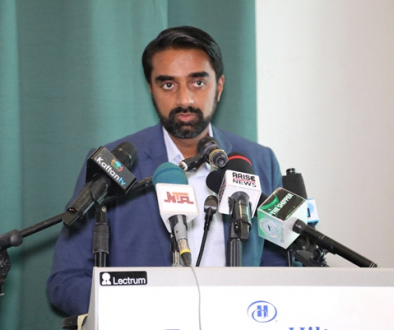Fixing the Trouble with Nigeria?
President Muhammadu Buhari’s style of leadership, despite lots of criticism, could well turn out to be just what Nigeria needs at this stage in her development. In Chinua Achebe’s 1983 book ‘The Trouble with Nigeria’, he states that social miracles could happen. He said this right after he famously and vehemently declared that “the trouble with Nigeria is simply and squarely a failure of leadership.” If his assertion is true, then perhaps there are concrete reasons for Nigerians to be optimistic if it turns out we are on track to fix the leadership question in Nigeria. Will President Buhari be the one to fix the trouble with Nigeria?
In this current dispensation, a number of adjectives and epithets are used to describe Buhari’s emerging presidency and style: ‘Baba-go-slow’, ‘slow-and-steady’, ‘body-language’, ‘consolidating power’, ‘broad mandate’, legitimate, different, stubborn, calculating, quiet, uncommunicative, visionary, solid, stealthy and exemplary to mention a few. Through analysis of the definition of these words and epithets, is it safe to conclude that one on a quest for change has emerged to the leadership of Nigeria? Whatever our answer to that question might be, few would argue that a discernible level of social reconditioning has started to take place especially in the public sphere, leaving the elites scrambling to maintain power as their power structures are quietly and systematically dismantled in this President’s unprecedented approach to leadership.
For example, there have been reports that it only took a visit by Mr. President to the Kainji Dam, unannounced, and a frank word with key some players in the power sector for there to be a “sudden” change in the pattern of power supply. The beneficiaries of the former ‘dilapidated system’ now have their work cut out as they re-strategize on ways to retain their stranglehold. How about some of our refineries now “suddenly” auto-bump-started into operation? Not to speak of the spate of revelations of corrupt deals, which transpired during the Goodluck Jonathan administration, now being chased up by anti-corruption agencies having read the President’s “body-language”? There are many more examples of these mysterious improvements apparently stoked up by the unseen hand of a very elusive figure of a President.
However, the biggest criticism of Mr. Buhari’s leadership style to date has been around his handling of the economy. Here, his impact is yet to be felt as the average man still struggles immensely to make ends meet. This is exacerbated by the fact that the Nigerian economy has not been in top shape due to the global fall in oil prices, the subsequent measures taken to defend the naira against convertible currencies and the massive looting of Nigeria’s funds. Interestingly, CBN policies in the first 100 days appear reminiscent of the choices Mr. Buhari made in the 1980s in favour of no devaluation but heavy restrictions on imports. Many commentators fear that like it was in the 1980s, Mr. Buhari may be following an agenda of harsh exchange controls and a dogged hunt for anyone engaged in acts of economic sabotage. Does this then provide a clue as to what economic policies could look like under the new Buhari administration given the similarities of the early 1980s with economic conditions in Nigeria today? Analysts might use words like, “adamant” and “stubborn” to describe his approach so far but does that mean he is wrong?
What is Buhari’s vision for the economy? Is Buhari’s style of leadership just what the doctor ordered? Are there drawbacks to this form of leadership? Economic analysts at Lagos-based firm, RTC Advisory Services Limited claim that the slow pace of Buhari’s administration, precisely the lack of clarity about its policy direction may be costly for the Nigerian economy. This points us to his quiet nature once again, which many feel may also hamper the idea of having a transparent government. For some, Mr. President seems more focused on the here and now, on showing the character of his leadership to be by example, without necessarily projecting a clear strategic vision for the country; they worry about potential policy chaos when the Ministers finally resume. In Nigeria’s complex political economy, perhaps the ‘doing-first-and-then-explaining-later’ approach is a sound response? Only time will tell.
The first set of names of nominees for Minister of the Federal Republic, went to the Senate September 30th as promised however the list has been greeted with very mixed reactions so far – many citizens have expressed disappointment and dismay at the sort of people who made the list – some are calling very strongly upon the Senate not to confirm the likes of Ex. Governors Amaechi of Rivers State and Babatunde Fashola of Lagos State, for example. If one should read the style of this leader well, this first list probably contains only the more political, more debatable names of the lot (and since he did not get into power on his own, some level of patronage cannot be ruled out). There is however a second set, and that list, according to the optimists and adherents, probably contains the names of those we would all expect to have seen upfront – the clear, confirmed, change agents. Whatever the case, the pattern of Buhari’s leadership style is up for study and its effectiveness or otherwise will be tracked by citizens, especially those hoping he will fix The Trouble with Nigeria.



